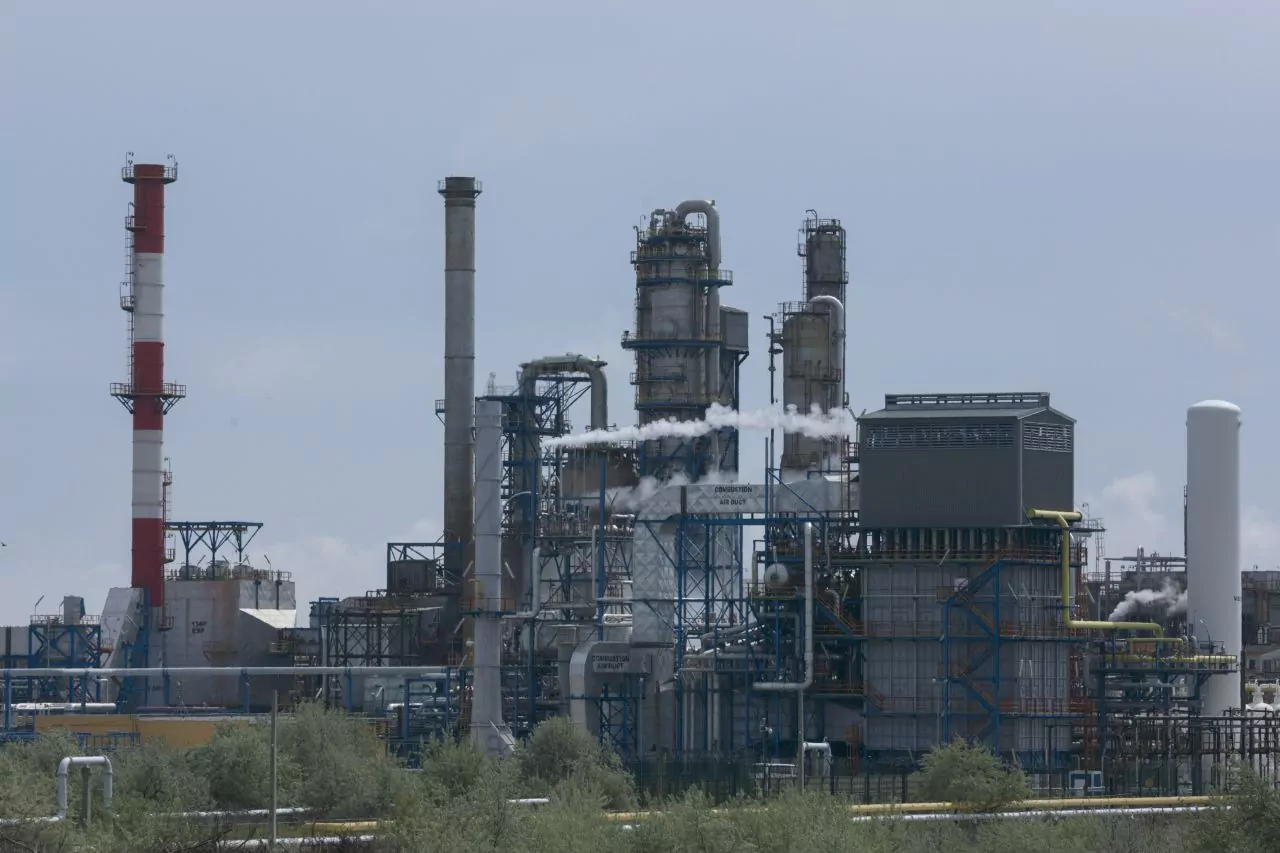The Kazakh-owned Petromidia Năvodari refinery has not been affected by the recent armed conflicts in Kazakhstan, as a large part of the raw material comes from this country and the supply of crude oil is on schedule, KMG International reported at the request of Economedia. The group, which operates the refinery in Romania, is wholly owned by national oil and gas company KazMunayGas Kazakhstan. KMG did not comment on allegations by Kazakhstan’s Competition Protection Agency against KazMunayGas that gas prices were set jointly with other producers, which allegedly led to price hikes and violent protests.
Urmărește mai jos producțiile video ale Economedia:
- articolul continuă mai jos -
“In the context of the recent events in Kazakhstan, KMG International’s activities and operations in Romania and the Black Sea region have been and are being carried out under normal conditions, with the supply of crude oil taking place in accordance with the processing schedule of the Petromidia Năvodari refinery,” KMG International representatives sent to Economedia upon request.
The group claims that the operational processes of the Petromidia Năvodari and Vega Ploiești refineries have not been disrupted, with stocks of raw materials for processing being sufficient and at the levels forecast by Rompetrol Rafinare specialists. At the moment, the daily crude oil processing overhead is at an average level of 13.6 thousand tonnes, even slightly up compared to initial forecasts, and production in the first days of the year amounts to about 60 thousand tonnes of processed feedstock, in line with production plans, the company says.
At the same time, the Group says that additional measures have been taken through the trading division to secure and secure deliveries of raw materials and petroleum products. “Absolutely all business activities, on each operational line, whether we are talking about the trading division, refining and downstream, are operating within the normal parameters, provided for in the previously approved business plans,” the company says.
“Last but not least, no Romanian citizen, employed by any company belonging to the Group, is currently in Kazakhstan, either at the headquarters of the parent company in Nur-Sultan or at the refineries operated by KazMunayGas,” KMG International says.
Economedia has also sought clarification on allegations by Kazakhstan’s Competition Protection Agency that it suspects a cartel between four major local producers, including KazMunayGaz, over gas pricing. We have not received an answer to this question.
Since the first days of the new year, Kazakhstan has been facing riots that started with protest demonstrations over the rise in the price of liquefied gas and turned political, with anarchic demonstrations, official buildings set on fire, and violent clashes between security forces and participants in these demonstrations, some of whom the Kazakh authorities have said were trained for combat, well-coordinated and even used firearms. The uprising ended with 164 dead, more than 2,200 injured and 9,900 arrested.
Amid the violent protests in Kazakhstan, the biggest seller of liquefied gas, giant Kazmunaygas (owner of Rompetrol) is suspected of colluding with other local producers to raise gas prices, a move that helped spark the social unrest. The allegations are made by the Competition Protection Agency, which estimates a cartel between four major local producers over gas pricing.
KasMunayGaz owns Petromidia, Romania’s largest refinery, through the KMG International Group, and operates a second refinery, Vega, in Romania. Through KMG Trading AG, a trading company located in Switzerland, the Group has major oil and oil products trading operations in the Black Sea and Mediterranean region. KMG International has more than 1,000 distribution points in European countries (Romania, Moldova, Bulgaria and Georgia) operating under the Rompetrol brand.
The Black Sea region is a strategic market for the Republic of Kazakhstan and KMG in terms of oil sales: over 59.2 million tonnes of oil from the Republic of Kazakhstan and 20 million tonnes, KMG’s volumes, were exported in 2020 through the Black Sea corridor.
KazMunayGas is a shareholder of Caspian Pipeline Consortium (CPC), the operator of the crude oil pipeline between the fields of western Kazakhstan and the Black Sea port – Novorossiysk Russia (length – 1,510 km). CPC is 31% owned by Russia, 19% by Kazakhstan, and the rest by other operators.
KMG International owns a marine terminal in the Port of Midia near the refinery. Through the terminal located 8.6 kilometers off the Black Sea, the company unloads raw materials brought in by pipeline from Kazakhstan. The oil terminal can receive vessels of up to 160,000 transmission and distribution, with crude oil unloading/loading operations carried out via a subsea and land pipeline between a floating mooring system and the Petromidia refinery’s tank farm. Operating through the terminal reduces the distance by about 33 kilometers compared to the route through the port of Constanta.
In the first 9 months of 2021, Petromidia Năvodari refinery processed over 3.3 million tons of feedstock, achieving production of 776 thousand tons of gasoline and 1.85 million tons of diesel and Jet A1 fuels. The refining capacity utilization rate in the Petromidia refinery was 60.2%, down 7.5% compared to the same period last year.

 Sursa foto: Inquam Photos/ Bogdan Chesaru
Sursa foto: Inquam Photos/ Bogdan Chesaru





























